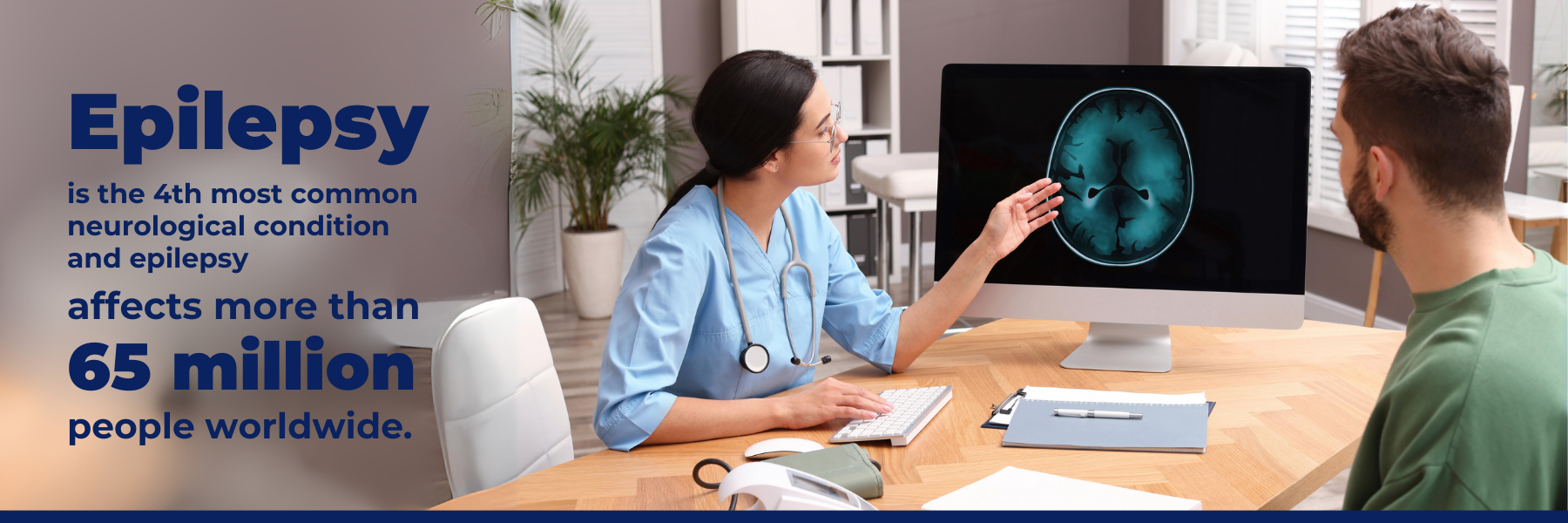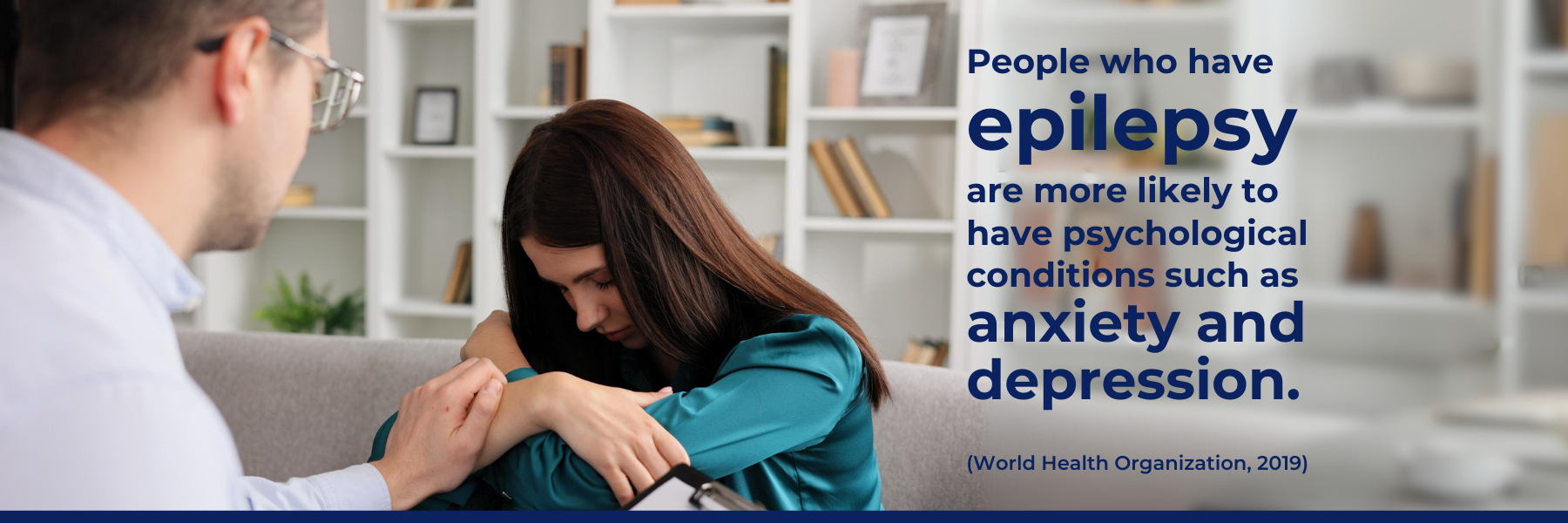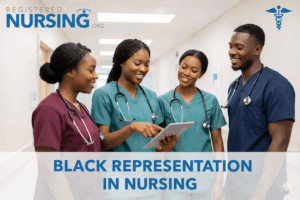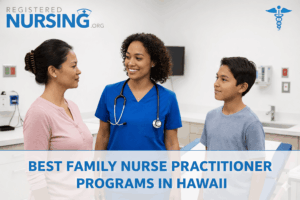Young Adults and Epilepsy: A Resource Guide
Starting college is an exciting and nerve-wracking time for anyone, but if you have epilepsy, it brings a unique set of challenges to the mix. You're juggling a lot – your class assignments, social life, and extracurricular commitments, all while also managing your health. It's no small feat, but the good news is you're not alone.
According to the Epilepsy Foundation, about 1 in 26 people in the United States will be diagnosed with epilepsy at some point in their lifetime. You're not alone in this journey – you likely have classmates who can relate to your struggles. A survey by the Centers for Disease Control and Prevention (CDC) found that approximately 1.2% of the U.S. population has active epilepsy, which translates to around 3.4 million people.
College life with epilepsy presents its own set of challenges, but have faith – you’ve got a network of support and resources to help you through. Whether it’s finding the right accommodations, connecting with medical professionals like neuroscience nurses and family nurse practitioners, or tapping into student support services, a wealth of information is designed to make your college experience as smooth as possible.
Heading to college? Don’t stress. Striking a balance between academic responsibilities and epilepsy management can be overwhelming, but we’ve got you covered. Check out these essential resources to help you succeed.

Articles
Find out the type of help you’ll find on college campuses for students with epilepsy, such as health services, filling prescriptions, and paying for school.
Pursuing a Higher Education Poses Unique Challenges for Those with Epilepsy
The Epilepsy Foundation looks at the challenges facing students with epilepsy in college and offers survival tips to help them get through the hard times.
An Epileptic’s Guide to Handling College: Advice and Resources
Andrew Bashor wrote this guide as part of his college studies to help epileptic students discover more about the resources available to them.
8 Things to Think About with Epilepsy and University
The eight tips found here are suitable for all college epileptic students and include learning how to manage their stress and when to tell others about their condition.
The Epilepsy Foundation helps students choose the right college based on their needs, such as the services offered by the schools and how students will get there.
How Epilepsy Can Affect Learning and the University Experience
After discussing epilepsy and its symptoms, this guide discusses how those symptoms affect one’s educational experience in college and studies.
Epilepsy and College or University
Parents and students alike can use this site to prepare for college, see what they can and should do at university, and how to find the resources they need.
Epilepsy and College: Students and Parents Share Advice and Recommendations
Learn right from college students and their parents about what did and didn’t work for them in school and discover the recommendations they make for other students.
Health services are available from most colleges, and you can learn about the best ones that will help you when you go away to school in this online guide.
Epilepsy and College: How to Survive and Thrive
Cure Epilepsy talks with a woman named Eva and Michelle, her mother, about how they learned to manage Eva’s seizures and keep her epilepsy symptoms under control while in school.
Scholarly
In this research paper, you’ll find out about the relationship between anxiety and other mental illnesses found in those with epilepsy and how the connection can lead to thoughts of suicide.
Springer Link shared this article, which focuses on how children and teens with epilepsy often do not receive the medical help they need to encourage parents to advocate for them.
A Systematic Review of Psychosocial Interventions for Children and Young People with Epilepsy
Several authors worked on this paper to find out the benefits of psychosocial interventions and how those interventions can help children cope and thrive with their epilepsy diagnosis.
Once this article finishes looking at how the perception of epilepsy changed over the decades, it reviews current data to focus on how young adults need more information to make decisions about their treatment plans.
The Impact of Epilepsy on Health Status Among Younger and Older Adults
Using data from the Veterans Health Administration, the researchers behind this journal article found how epilepsy can affect the general health of people of a younger or older age.
Patterns of Daily Activity Among Young People with Epilepsy
Several researchers gathered data about how much time young people spent using screens and sleeping vs. physical activity and then compared the times among those with epilepsy.
Perceived Impact of Epilepsy in Teenagers and Young Adults: An International Survey
Find out the responses that young people with epilepsy gave to a questionnaire designed to see how the different treatments they chose impacted their overall quality of life.
Failed Transition to Independence in Young Adults with Epilepsy: The Role of Loneliness
Loneliness is a major problem facing young people with epilepsy, but this study looked at how it occurs more commonly among those who had issues transitioning to adult life.
This study looked at nearly 200 students to find out how satisfied they felt and their overall quality of life after living with epilepsy and seeking treatment from medical professionals.
The Epilepsy Transition Care Gap in Young Adults with Childhood-Onset Epilepsy
More than 30% of children receive an epilepsy diagnosis at a young age, and this study looks at the gap between the care they get and the care given to those diagnosed at a later age.
University Students with Epilepsy: A Study of Social Aspects
Find out how 15 students with epilepsy responded to a questionnaire about their college experiences and whether they thought the diagnosis was a hindrance to them in school.

Organizations
The Epilepsy Foundation offers help for those living with epilepsy and those who want to support their loved ones, along with programs that accept volunteers.
Join the American Epilepsy Society to learn about the clinical care and education available through the organization and to attend the annual meeting.
Creating connections and building community is the slogan of Epilepsy Alliance America, which helps you learn about the disease and find helpful services.
CURE Epilepsy is an organization that awards grants, shares news about the epilepsy community and runs research initiatives to continue finding possible treatments and other help.
Find online and local support groups for people in your age range who have epilepsy through this organization, which also holds events and offers free resources to help you live your best life.
The Epilepsy Leadership Council works with more than 60 other organizations to effect political change and support research initiatives to raise awareness of the disease.
Finding a Cure for Epilepsy and Seizures
Better known as FACE, the organization brings together medical professionals to find cures for common disorders and helps you see the impact you can make in your community.
The Child Neurology Foundation wants to support one out of every five children diagnosed with epilepsy and related conditions by teaching them about the disorders, providing them with resources, and helping them find doctors.
As an epilepsy assistance foundation, Josh Provides is an organization devoted to giving back and helping those with epilepsy through programs that help them find assistance dogs, medical services, and other support.
Empowering People’s Independence
Also known as EPI, Empowering People’s Independence hosts annual camps for those with epilepsy and webinars, support groups, and scholarships for those who need more help.
Advocacy and Accommodations
The Top 5 Tips for New College Students
The Epilepsy Advocate created a helpful guide that covers the top tips for epileptic college students, such as getting the proper amount of sleep and communicating with their schools.
Epilepsy Strategies: Transitioning to College
Find out how to start your transition to college as someone with epilepsy and learn about the resources that can help you in this handy online guide.
School, College, or University
Available from the Epilepsy Society, this guide helps advanced students of all ages understand how to get the support they need and find more ways to seek help.
Turn to the Epilepsy Society to see the university options that are available to you, how to decide if college is right for you, and the emotions that can arise when going to school.
Epilepsy Scholarships: Where to Begin
This page goes over some scholarships open to epileptic students, where to find them, how much financial aid they include, and the application requirements.
Learn how you can advocate for those with epilepsy on this website, which suggests helping them secure affordable health care and finding ways to end discrimination against them.
Gregory L. Holmes is a medical doctor who wrote a short article to help anyone with epilepsy learn whether they can handle part-time work and going to college.
Katie Nunn is a college student with epilepsy who shares tips for others based on her experiences, such as telling their roommates about their seizures and learning how to manage their assignments.
Accommodations for Students with Seizure Disorders
This guide, from Virginia Western University, provides teachers with tips on working with students who suffer from seizures, such as giving them extra time to work and avoiding the students’ triggers.
Epilepsy-Related Useful Accommodations
The Epilepsy Foundation of Minnesota offers a long list of reasonable accommodations for epileptic students that include getting oral and written directions, taking breaks after seizures, and engaging in self-care.
Working with Epilepsy
This page offers links to resources that tackle employment topics, such as how to find employment when to disclose your medical history and the best ways to seek reasonable accommodations.
As an epileptic, you need to know how to be safe at work and what to do if an incident occurs, which are some of the topics covered on this helpful website.
This page will be helpful to both workers and their supervisors as it examines the accommodations workplaces need to offer and what workers can do if an incident occurs.
Epilepsy in the Workplace and the ADA
The U.S. Equal Employment Opportunity Commission created a page on its website to cover the accommodations employers should offer to workers with epilepsy and those afforded by the ADA.
Epilepsy in the Workplace: A 10-Step Guide
System Concepts offers 10 easy steps employers can follow to make a workplace more accessible for epileptic workers. These steps include knowing what to do during a seizure and how to ensure their safety.
Safety Sensitive Jobs for Epilepsy
The Epilepsy Foundation offers tips on how to make a workplace safer for an employee with epilepsy by limiting flashing lights, providing safety gear, and using safe machines.
Young Epilepsy knows that younger people may have questions about whether they can work with epilepsy and offers a guide to help you find the right position.
Top Tips for Working with Epilepsy
See when and how to tell people about your condition, where you can go for help, and other tips you’ll want to use when you work part-time or full-time.
Employer Accommodations for Epilepsy
See the accommodations your employer must offer to handle your epilepsy based on the symptoms you experience, where you work, and the number of workers around you.
Medical Personnel and Epilepsy
The Epilepsy Foundation discusses how employers cannot reject an applicant based on a disability like epilepsy and talks about how all employers must follow the ADA guidelines.

Podcasts
CURE Epilepsy is behind Seizing Life, a podcast that brings in a new guest for each episode to cover topics like the best organizations for epileptics and emerging treatment options.
From the Epilepsy Foundation, this podcast has eight episodes that feature the origin stories of those diagnosed with the condition and how lifestyle changes can help those with epilepsy.
The International League Against Epilepsy (ILAE) designed the Sharp Waves Podcast to discuss major issues like some of the top prescriptions for epilepsy and how to address the stigma behind the condition.
Neurology Podcast: Epilepsy/Seizures
The Neurology Podcast devoted multiple episodes to epilepsy and seizures, covering topics that range from FND Awareness Month to roundtable discussions with experts in the field.
While living with epilepsy can feel frustrating at times, you’ll learn you’re not alone in this podcast that features others talking about their experiences and airing their grievances.
Another podcast that lets you hear from others in similar situations is Epilepsy Voices, which uses unique episode titles to get you excited, like "My Fight Song" and "Never Give Up."
Liv and Steve created Fish Out of Water to discuss how they live with epilepsy and as a way to encourage others to move beyond the symptoms they face.
Don’t let the funny name fool you because the Hazy Not Crazy Podcast can get serious sometimes, but it uses a lighter approach to focus on trending epilepsy topics in each episode.
Jamie Wissinger is the mind behind Epilepsy Awareness, a podcast that brings in guests to discuss the positive things about living with epilepsy to encourage listeners to make good choices.
Tiffany Webb released a new episode of The Epilepsy Spectrum every Sunday for months, offering a short and simple way for listeners to discover new and trending topics about the disease.
Videos
Learn from other people in similar situations in this Better Health Channel video that features students 19 and younger discussing their problems and issues in school and other settings.
In just three minutes, the Epilepsy Foundation looks at the challenges young people with epilepsy face and helps them see they can get help and live happy lives.
A Young Woman’s Epilepsy Journey of Acceptance, Empowerment, and Advocacy
CURE Epilepsy used this video to highlight the story of a woman diagnosed with epilepsy as she talks about her experiences early on and later in life.
Also from CURE Epilepsy, this video features former students who took part in past videos as they talk about their college experiences and provide advice for other students.
Dr. David Nast – Accommodations: Off to College: A Guide for Students with Epilepsy
Dr. David Nast is the Director of the Office of Specialized Services at a leading university who offers guidance and tips to help epileptic students get ready for college and succeed in school.
The videos on this page teach you about rescue therapy, when to use it, what a seizure action plan is, and how to design one.
Navigating the Transition to College
Though moving to college is exciting, it can also present some challenges, which is why the Epilepsy Foundation designed a video outlining some of the ways to make the process easier.
Epilepsy and College: Strategies for Success
Hear the top strategies that will help you achieve success in college through this video, which runs for almost an hour and offers tips like using a pill box to manage your prescriptions and how to find accommodations.
College Considerations After Epilepsy Surgery
Suppose you have had surgery or plan to have surgery for your epilepsy. In that case, this video is a must-watch because it mentions the resources and accommodations that many colleges offer for current students.
On top of offering a brief look at epilepsy and its symptoms, this video looks at the different types of seizures associated with the condition and what others can do when they see someone having a seizure.
Fair Use Statement: Please share our content for editorial or discussion purposes. Please link back to this page and give proper credit to RegisteredNursing.org.
Latest Articles & Guides
One of the keys to success as a registered nurse is embracing lifelong learning. Our articles and guides address hot topics and current events in nursing, from education to career mobility and beyond. No matter where you are on your nursing journey, there’s an article to help you build your knowledge base.
Browse our latest articles, curated specifically for modern nurses.



